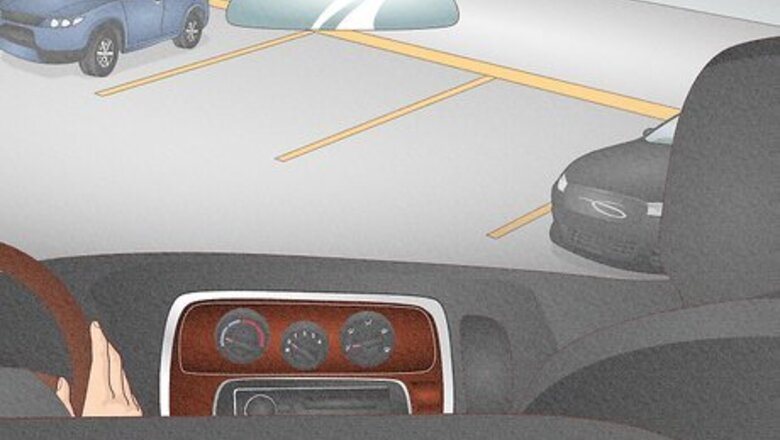
views
X
Trustworthy Source
Science Direct
Online archive of peer-reviewed research on scientific, technical and medical topics
Go to source
While it might take you a little practice, reverse parking is a pretty simple skill to master. Read on to learn the easiest way to back up into a parking space.
- Pull forward to the third line past the spot where you want to park.
- Turn your wheel in the direction of the parking spot as far as you can.
- Look over your shoulder in the direction your car is moving as you slowly reverse into the parking spot.
Find a good parking spot.
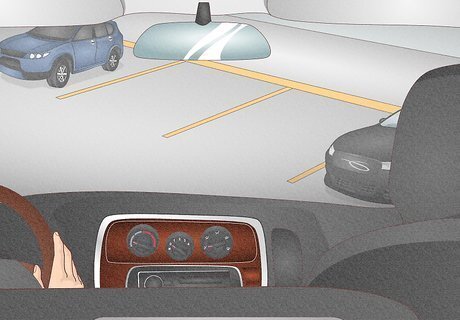
Look for a spot that's not between 2 other cars. In a crowded parking garage, this might not be an option—but it's always going to be a lot less stressful if you only have to worry about one car rather than 2. If you're going to be parked overnight, make sure there's plenty of overhead light so there's less of a chance that your car could get broken into. If you're in a larger lot with no stops between the rows of spaces, look for a spot where you can pull through to the next row. That way, you'll be nose-out in a spot without having to back at all.
Flip on your turn signal.
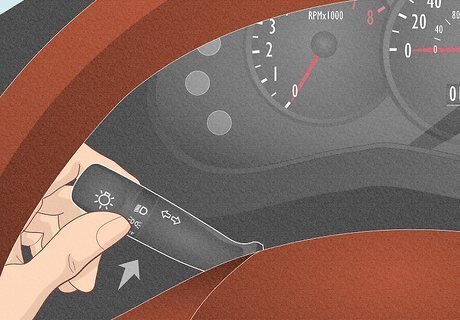
Let other drivers and pedestrians know what you're going to do. Flip your turn signal in the direction of the parking space you're going to back into. This, combined with the reverse lights, will tell anyone behind you that you're about to back into that empty spot you just passed. If there's another car behind you and they didn't get the message that you're parking, try flipping on your hazards—they'll likely at least understand that you want them to go around.
Drive 2 spots past the spot where you want to park.
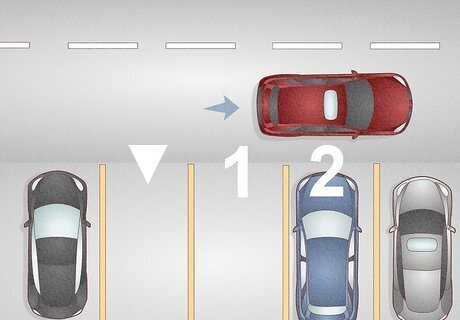
Line up your rearview mirror with the outside line of the second spot over. You can also think of this as the third line. Just start your count with the line between the spot where you want to park and the one next to it. That third line gives you a visual reference so you always know how far to pull forward to turn in perfectly. Pull up with the side of your car no more than 1 foot (0.30 m) away from the openings of the spots or the bumpers of the other parked cars. This visual reference works for most 4-door sedans. For a smaller car, line up your front bumper with the third line. Have an SUV or truck? Try lining your front bumper up to the fourth line. Practice this a few times and it'll become automatic. Then, you'll be able to back in perfectly and it'll only take a few seconds longer than if you'd pulled in.
Turn your wheel in the direction of the spot until it locks.
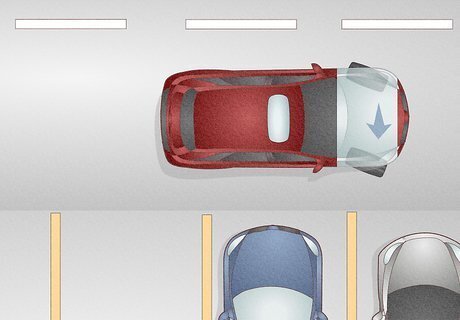
Shift your car into reverse and turn the wheel as far as it will go. If the parking spot is on your right, you'll turn the wheel to the right. If it's on the left, you'll turn the wheel to the left. This works whether you're driving a left-hand or right-hand drive car. This is the quickest and easiest method because it takes out the guesswork. You always know the exact distance you should be turning from and how sharply you should be turning.
Turn your head to see where you're going as you reverse.
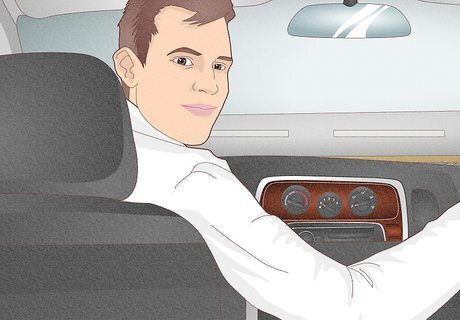
Glance in all directions, especially in busy parking lots. Always look in the direction your car is going—even if you have a backup camera. If you get too close to neighboring cars for comfort, stop. Pull forward a bit and turn your wheel just a little in the opposite direction (away from the spot) to give yourself a little room, then keep backing. Be careful about relying too heavily on your backup camera. If you're taking your driving test, you probably won't be allowed to use it. Besides, you'll actually be able to see where you're going much better if you turn around.
Straighten your wheel to finish backing into the spot.
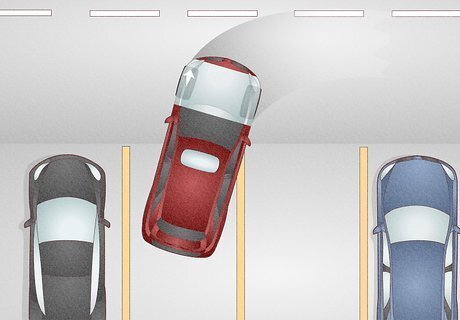
Start straightening when your rear bumper gets halfway into the spot. Move slowly so you can tell when your rear tires are parallel in the spot—that's when you need to straighten it out. This can take some practice because it depends on the turning radius of your car. If you have a backup camera, it's helpful here because you can see on the screen when your wheels are parallel. Just remember to alternate between looking at the screen and looking over your shoulder.
Move straight back to the end of the spot.
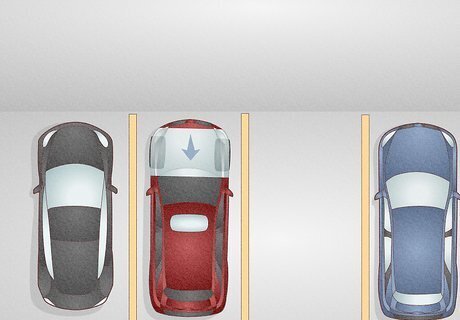
Reverse slowly, keeping your wheels straight until you're fully in the spot. Now that you're in the spot, glance forward to the ends of the lines that mark the parking spaces. When your front bumper is even with the ends of those lines, you're good to go. If you have a backup camera, you can also glance at the screen occasionally so you know when to stop.
Check your space and adjust as necessary.
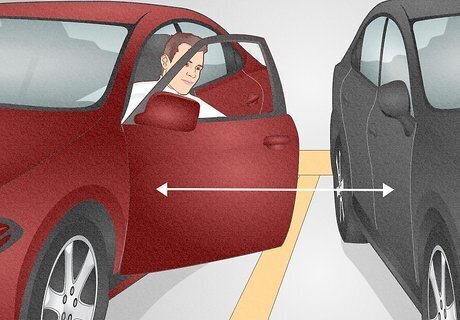
Open your door or stick your head out the window to see where the line is. If you're too close to one side—like right up next to the line—you might not be able to get in your car when you come back out. You might also be slightly crooked or over the line—no big deal! Just pull forward and correct the angle so that you can back in straight. If you're having a hard time, it might be better to pull all the way out and start over from the beginning. Just take a deep breath and start fresh—you've got this.
Put your car in park and turn it off.
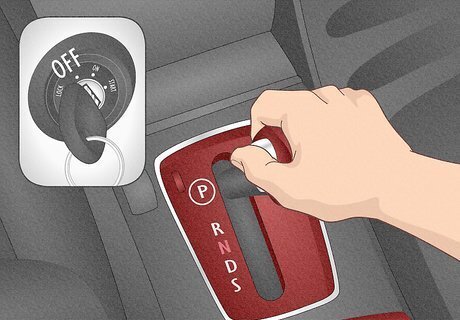
Engage your parking brake before you leave your car. That's it—you're done! Take your keys out of the ignition and open your door slowly to get out. Just be careful not to open it too quickly and slam it into the car next to you. Even though you parked perfectly square in the space, that's still a possibility. Check your mirrors quickly before you get out of your car, just to make sure there's no one walking beside your car that you might wack with your door.




















Comments
0 comment